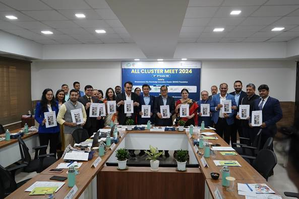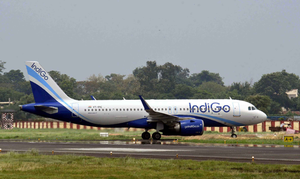PSA emphasises value of inter-cluster collaborations to scale impactful projects

New Delhi, Nov 26 (IANS) Central Government’s Principal Scientific Adviser (PSA) Prof Ajay Kumar Sood emphasised the value of inter-cluster collaborations to scale impactful projects during the 2nd All S&T (Science & Technology) Clusters’ Meet in Bhubaneswar.
The PSA chaired the 2nd All S&T (Science & Technology) Clusters’ Meet held on November 25-26 in Bhubaneswar. Hosted by the Bhubaneswar City Knowledge and Innovation Cluster Foundation (BCKIC), the meeting coincided with the 25th anniversary of the Office of the PSA (OPSA) on November 25.
The S&T Cluster Initiative, launched by the OPSA in 2020, has established eight vibrant clusters across the country— Andhra Pradesh Medtech Zone (AMTZ) – Vizag, Bengaluru Science and Technology (BeST), Bhubaneswar City Knowledge and Innovation Cluster Foundation (BCKIC), Delhi Research Implementation and Innovation (DRIIV), Jodhpur City Knowledge and Innovation Cluster (JCKIC), Panjab University – IIT Ropar Regional Accelerator for Holistic Innovations (PI-RAHI), Pune Knowledge Cluster Foundation (PKCF), and Research and Innovation Circle of Hyderabad (RICH).
These clusters bring together academia, industry, local government, and startups to collaboratively address regional challenges through innovative S&T interventions. During the meeting, all eight clusters presented their accomplishments and ongoing initiatives, showcasing the tangible benefits of collaborative efforts.
In his keynote address, Prof. Sood emphasised the importance of promoting interdisciplinarity, breaking silos, and fostering a mindset shift towards collective problem-solving.
He reiterated that the cluster model should focus on delivering outcomes that could not be achieved by traditional or siloed approaches and emphasised the value of inter-cluster collaborations to scale impactful projects and replicate successes across regions.
Scientific Secretary, Dr Parvinder Maini, OPSA, highlighted the critical importance of translational research in addressing contemporary challenges amid the steady growth of India’s STI ecosystem. She emphasised the value of the cluster concept in fostering collaboration among stakeholders to ensure innovations benefit end-users. Dr Maini also reiterated the importance of industry linkages in Phase 2.0 of the cluster initiative, enabling the upscale and utilisation of technologies for societal advancement.
Six thematic compendiums on (i) Healthcare, (ii) Energy and Environment, (iii) Agritech and Nutrition, (iv) STEM Education, (v) Livelihood through S&T Interventions, and (vi) North East India Impact and Industry 4.0, were released by Prof Sood during the meeting. He also inaugurated the cluster dashboard that will track and highlight the progress of cluster activities.
The meeting also featured an interactive session with industry associations, corporate social responsibility (CSR) representatives, and local authorities. Discussions focused on the potential of clusters to complement industry efforts, the role of clusters in translating scientific research into actionable solutions, and avenues for collaboration to drive economic and societal benefits.
On the sidelines of the event, Prof Sood also inaugurated the Atal Tinkering Labs’ Student Innovation Fair organised by BCKIC under its ‘Catch Them Young’ programme. The fair provided a platform for school students and startups to present innovative ideas and products, and interact with Prof Sood.
“The meeting served as a testament to the transformative potential of collaborative S&T efforts, reinforcing the commitment to driving regional and national development through science and technology,” the Office of Principal Scientific Advisor said in a statement.
–IANS
uk/





